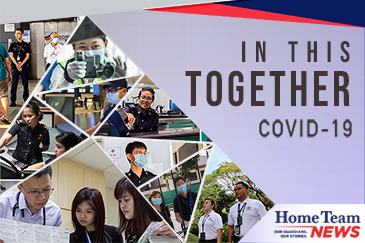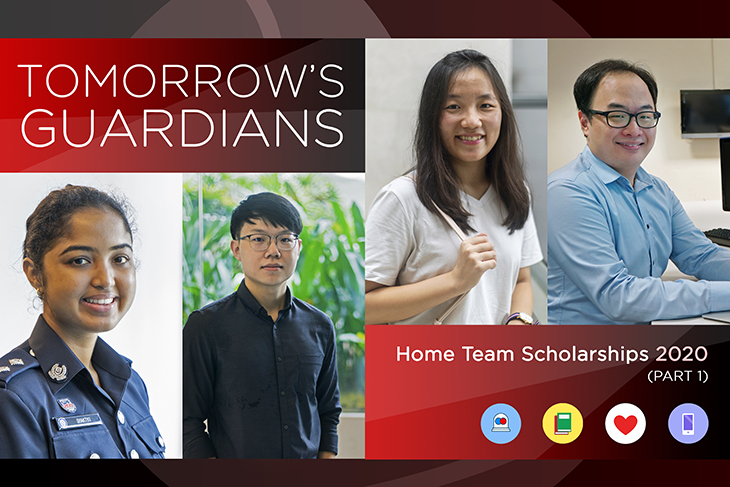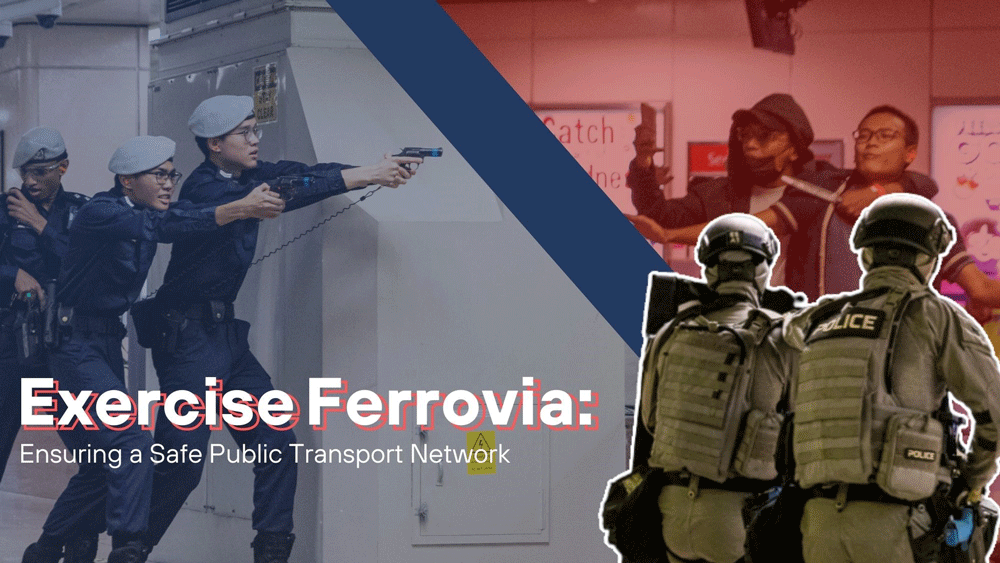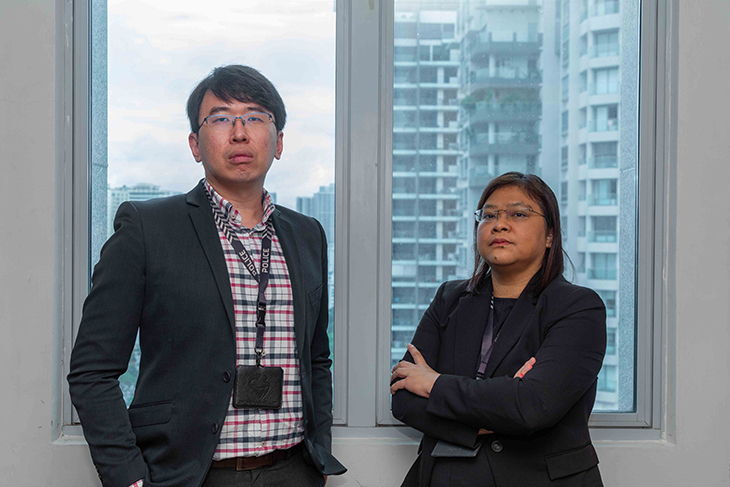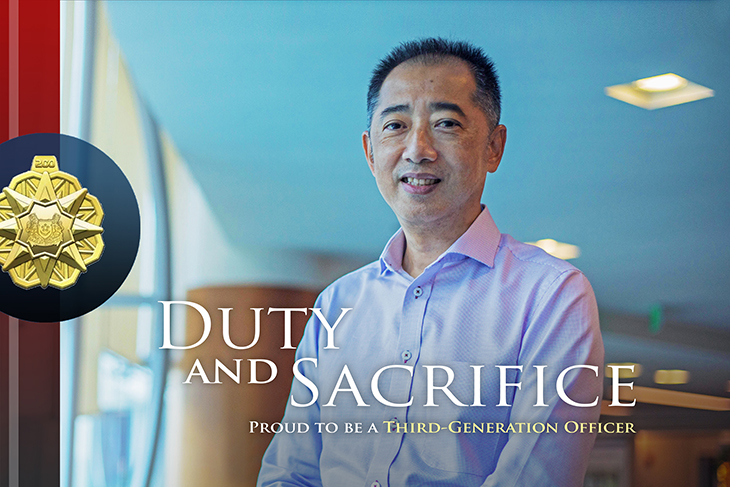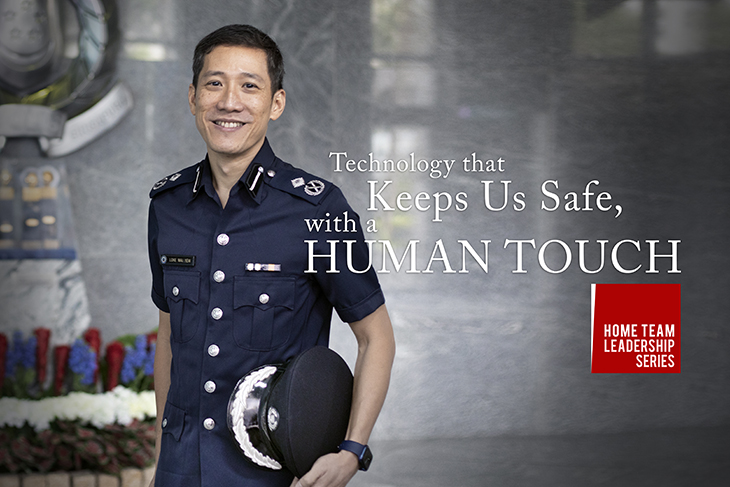
For Assistant Commissioner (AC) Loke Wai Yew of the
Singapore Police Force (SPF), it’s never about the technology alone, but how it can be leveraged to help officers do their work better. Having contributed to tech-driven projects like the Police Smartphone; Police Beacon; Next-Generation Fast Response Car; and autonomous robots and drones, he understands the importance of putting people at the centre of Policing. Now, as Director of SPF’s Ops-Tech Department, AC Loke brings this same focus on the essentials to his leadership style.
Share with us your 22-year journey with SPF.
I received the SPF Overseas Scholarship in 1995 and completed a degree in Engineering. After my foundation posting as an Investigation Officer, I served in a variety of roles – frontline operations at Tanglin Police Division; working on investigation policies at the Criminal Investigation Department; secondment to the
Ministry of Home Affairs to look at counter-terrorism policies; the Police Technology Department; and SPF's Planning and Organisation Department.
In 2019, I joined SPF’s Ops-Tech Department, and our goal is to provide strategic guidance on how SPF can leverage developments in Science and Technology across our policing functions. Having been exposed to so many dimensions of Police work, in both operational and policy roles, I’m a fast learner!
What inspired you to join SPF?
What stood out for me at 19, and which has always stayed with me, is the very clear and specific mission of the SPF: to keep people safe and to maintain law and order. Safeguarding Singapore is inherently meaningful and purposeful.
Another aspect of serving as an officer that appeals to me is being given the opportunity to grow – not just professionally, but also personally. SPF is an organisation that allows us to interact with people from every part of society and to make a real contribution, in a way that very few organisations can do.
Share a memorable experience from your early days as an officer.
I was with the Operations Department of Tanglin Police Division during the SARS outbreak of 2003. We hadn't seen such a threat to public health in eons, and it had a huge and immediate impact on our everyday lives.
SARS was challenging for Police officers on multiple fronts. To ensure that we could continue going about our work safely and effectively, we had to quickly put in place Standard Operating Procedures ranging from the kind of personal protective equipment to don and how we should disinfect our patrol vehicles to managing persons in our custody. At the same time, we had to balance ensuring safety in our work processes against limiting our operational efficiency.
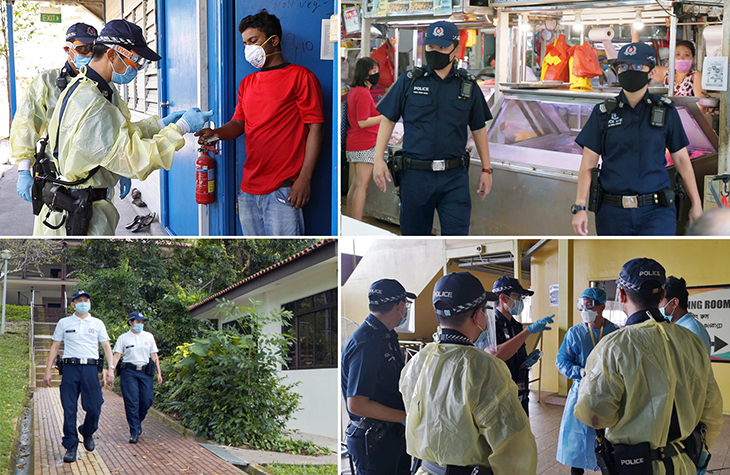
Lessons from SARS: Having undergone similar operational challenges during SARS in 2003, SPF was ready to step forward once more to take on COVID-19. PHOTOS: SPF
When you look at what SPF has done in 2020 and 2021, it seems to me that we’ve learnt many important lessons in terms of how we can support Singapore’s national response to COVID-19. Part of this is thanks to what we went through during SARS. That was one of the major learning points from early in my career.
How has Science and Technology enhanced Police operations over the years?
One recent example is how we deployed various tech tools such as autonomous robots and drones during COVID-19.

MATAR and autonomous drones were deployed to support our COVID-19 efforts. PHOTOS: SPF, Home Team News
But while technology is an important tool, it’s never about technology on its own. It’s about how technology enables us to perform more effectively, make better decisions and act quicker, with greater coordination.
Take the Police Operations Command Centre (POCC), for example. It has its roots as the Radio Division in the 1940s, when operators took "999" calls and relayed the information to officers at the stations. The POCC now serves as the nerve centre for all Police operations, integrating technologies such as Police Cameras and processes to allow better sensemaking and decision-making, to support our frontline response and incident management. Today, our officers in patrol cars can also access vital information quickly while coordinating their response with POCC.
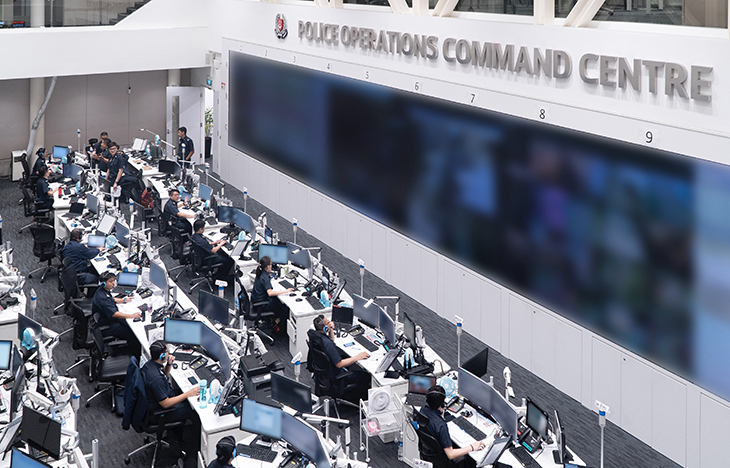
The Police Operations Command Centre. PHOTO: SPF
This sort of integrated approach is just one example of how SPF has used technology to deepen our capabilities and help our officers carry out their duties better and faster.
What are the traits that a leader should possess?
Firstly, clarity of goals. Leadership is about working with a team to accomplish a specific outcome. Knowing what you want to achieve and making sure that everyone understands that is really important. If you don't have a good read of what's happening around you, then you're going to have a tough time planning a good route to your destination.
Another trait is a knowledge of yourself and others. If you don't recognise how certain individuals will be adversely affected by certain decisions, how can you help mitigate the adverse impact? If you don’t take action to help mitigate the impact, how can you be surprised if there’s push-back? It’s important to address the worries of others, whether these are warranted or not.
Lastly, be an effective communicator. The essence of communication is understanding others and helping them to see your perspective.
What are the lessons you learnt from the Home Team Academy's apex Phoenix Programme for Home Team leaders?
I appreciated the personal mastery module in understanding myself. Police work requires one to be versatile and switch gears with job rotations every few years. More than the job competencies and knowledge required, it’s about having the right attitude and mindset – asking myself what I need to see, think and do differently, given the new role that I’ve been assigned. I’ve learnt to be more open-minded and consultative, and to give my officers the space to figure out situations themselves.
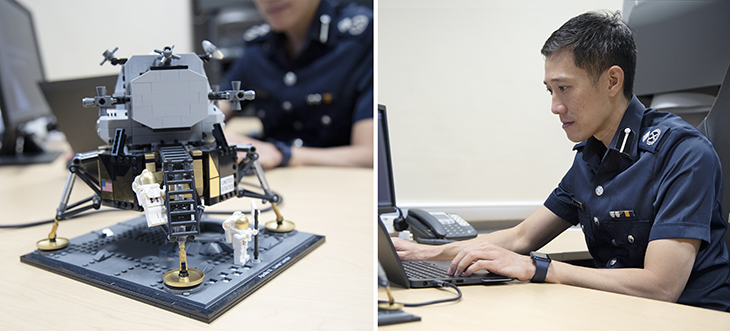
Lessons in leadership: For AC Loke, it's important to know the bigger picture and have a grasp of the relevant details. PHOTO: Samantha Fuentes
Another lesson that inspired me was looking at circumstances at different levels of granularity, to appreciate the full situation. A detail-oriented person without an appreciation of the bigger picture may miss the forest for the trees. Conversely, operating solely at the higher level may fail to bring about changes needed on the ground. A good leader must be able to recognise and operate effectively at every level.
What advice do you have for aspiring leaders in the Home Team?
To get a complete picture of the change you want to bring about, ask yourself what is it that you're really trying to achieve with your team. When you can see this change clearly, you’ll then be able to communicate it and rally others around you. After that, throw yourself wholeheartedly into it.
Home Team Leadership Series
This leadership series features Home Team leaders who have attended leadership programmes organised by the
Home Team Academy (HTA). As the Corporate University of the Home Team, HTA delivers leading edge training and learning opportunities for Home Team leaders, trainers and officers. This includes a suite of leadership programmes for Home Team leaders at different stages of their career. Follow
HTA’s LinkedIn page to learn more about the Home Team’s Training and Learning Initiatives.
Read:
It's About Walking the Walk






